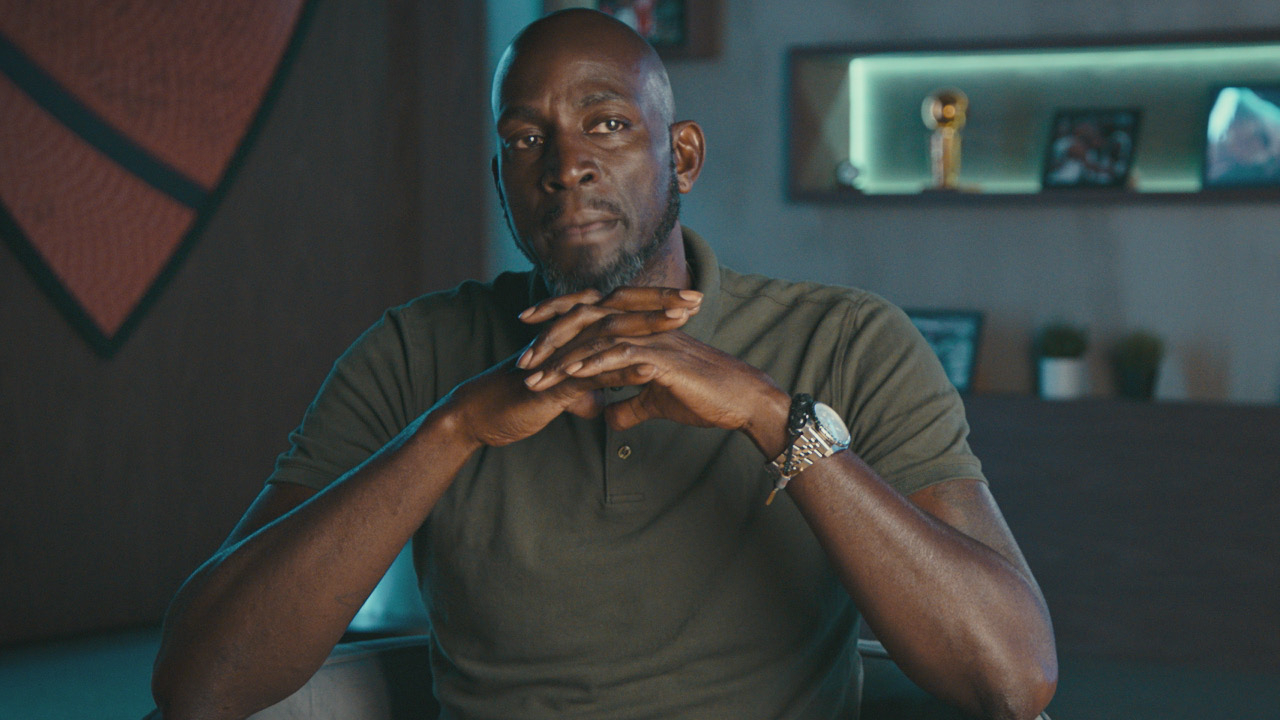Adapting Stephen King's 1922: Thomas Jane's 2017 Netflix Movie Is The Best Kind Of Grim
The Stephen King renaissance of 2017 ended with excellence.
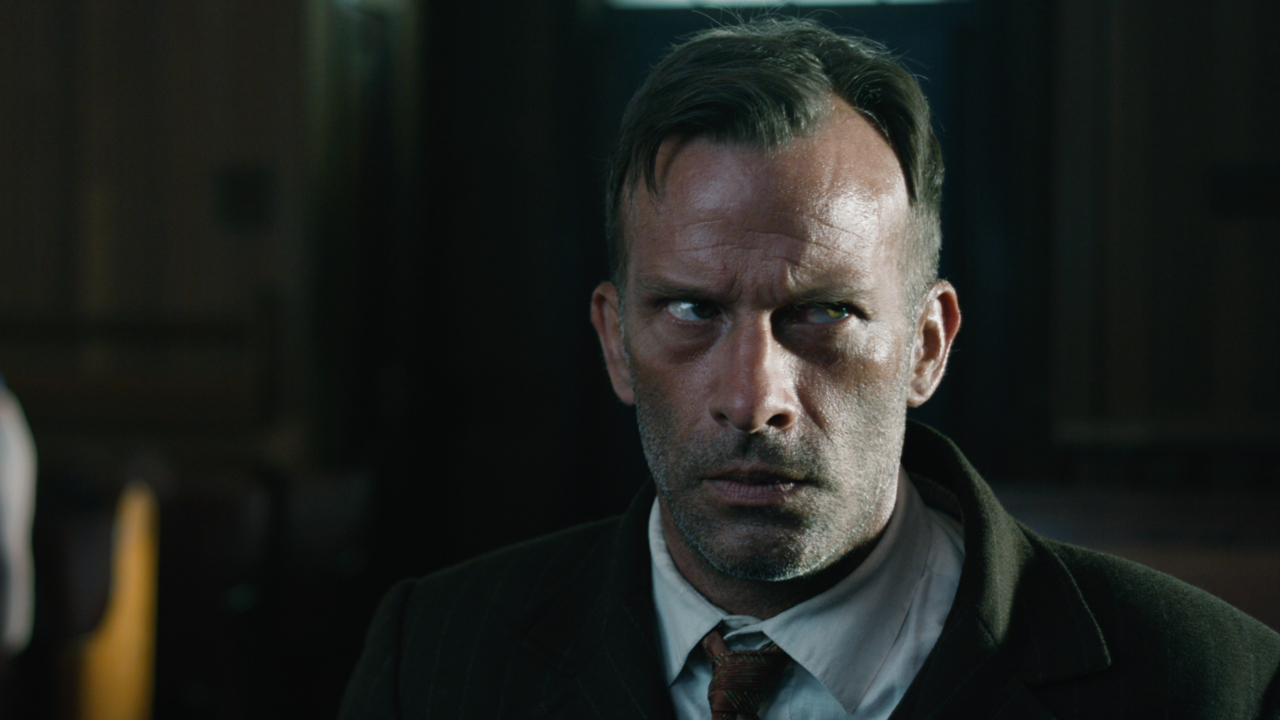
As I’ve chronicled in the creation of this column, there has never really been a lull in the history of Hollywood adapting the works of Stephen King. Since 1976, there have been few years that didn’t see the premiere of at least one new film or television project based on the writer’s books and/or short stories. That being said, 2017 is widely recognized as being a special time for Constant Readers, as it was a period that generated a renaissance for pop culture’s appreciation of King.
Admittedly, things in 2017 didn’t start off particularly well. The Mist television series debuted in June, and during its one-season run failed to inspire much excitement. Nikolaj Arcel’s The Dark Tower hit theaters on August 4, 2017, and it’s properly regarded as an absolute disaster. But then everything changed. In the span of just a few months, the brilliant Mr. Mercedes premiered on Audience, and then two of the best Stephen King movies of all time – Andy Muschietti’s IT: Chapter One and Mike Flanagan’s Gerald’s Game – were released within weeks of one another.
It was a staggering streak that unfolded quickly, and then Zak Hilditch’s 1922 dropped less than a month after Gerald’s Game to end 2017 on a high note.
As discussed on an episode of The Commentary Cast, Hilditch first discovered Stephen King’s novella “1922” when his first feature film, These Final Hours, was trying to secure financing. Needing a distraction from the stress, the filmmaker purchased a copy of King’s 2010 collection Full Dark, No Stars, and he was enraptured by the first of the four stories in the book. Among his initial thoughts about the work was that writer/director Frank Darabont would eventually make a great adaptation.
The Australian filmmaker couldn’t conceive of the idea that he would eventually be in a place in his career where he could make a Stephen King adaptation himself – but that attitude changed after he made These Final Hours and decided he wanted to make 1922 as his follow-up. In order to secure the rights, he wrote the screenplay on spec for the author’s approval and then had to set the project up within a year, and on both fronts he was successful. With Netflix backing the film, and Thomas Jane set to play the lead (his third King adaptation), production began in November 2016, and the streaming service debuted it on October 20, 2017.
1922 is not a movie you watch if you’re in need of an emotional pick-me-up, as it’s a macabre and harsh tale from start to finish, but it’s also impressive in its unrelenting tone and atmosphere and a stellar translation of the source material – which I dig into in this week’s Adapting Stephen King.

What “1922” Is About
Stephen King may be best known for writing stories set in Maine, but he clearly has some kind of a fascination with Nebraska. In the King canon, it’s portrayed as both a place of warmth and welcoming (it’s notably the home of force-for-good Abigail Freemantle in The Stand) and the setting of unimpeded and secret horrors (such as in the short story “Children Of The Corn.”) “1922” is one of the author’s most recent journeys into the Midwest state, and while it’s actually set in the same fictional town introduced in The Stand (Hemingford Home), it leans far further toward the dark side of things than the light.
CINEMABLEND NEWSLETTER
Your Daily Blend of Entertainment News
While the novella is set in Nebraska, Stephen King credits inspiration for the story to Wisconsin Death Trip – a 1973 non-fiction book that collects photographs and newspaper clippings keeping a record of various strange and sordid incidents that transpired in Jackson County, Wisconsin between 1885 and 1900. As noted in the “Afterword” of Full Dark, No Stars, he was particularly struck by the photos and hard-living people in them. King writes,
I was impressed by the rural isolation of these photographs, and the harshness and deprivation in the faces of many of the subjects. I wanted to get that feeling in my story.
The desire to capture that harshness and deprivation led to the creation of Wilfred James, a well-read man so dedicated to the farm life that he is willing to take some extreme measures and do some horrible things. The novella is written from his perspective and as a letter of confession.
In the titular year 1922, Wilfred lives with his wife, Arlette, and 14-year-old son, Henry, on an 80 acre farm in Hemingford Home, Nebraska, and it is the protagonist’s desire to expand operations onto the 100 adjoining acres that were owned by Arlette’s father and willed to her. This, however, does not line up with Arlette’s ambitions, as it is her desire to move to Omaha and open up a shop. She suggests selling the land, splitting the earnings, and getting a divorce, but Wilfred knows that the Farrington Livestock Company would purchase the property and end up poisoning the local stream with slaughterhouse runoff.
Unwilling to compromise on the future he sees for himself and Henry, Wilfred gives in to a subconscious voice he calls The Conniving Man and begins to plot Arlette’s murder – in the process manipulating Henry so that he will help. They slit her throat and dump the body in an old well, and the cover-up that they execute works flawlessly. But while they are never punished by the law, the universe is another story, as Wilfred’s life unfurls in a spiral of death, poverty, and desperation.
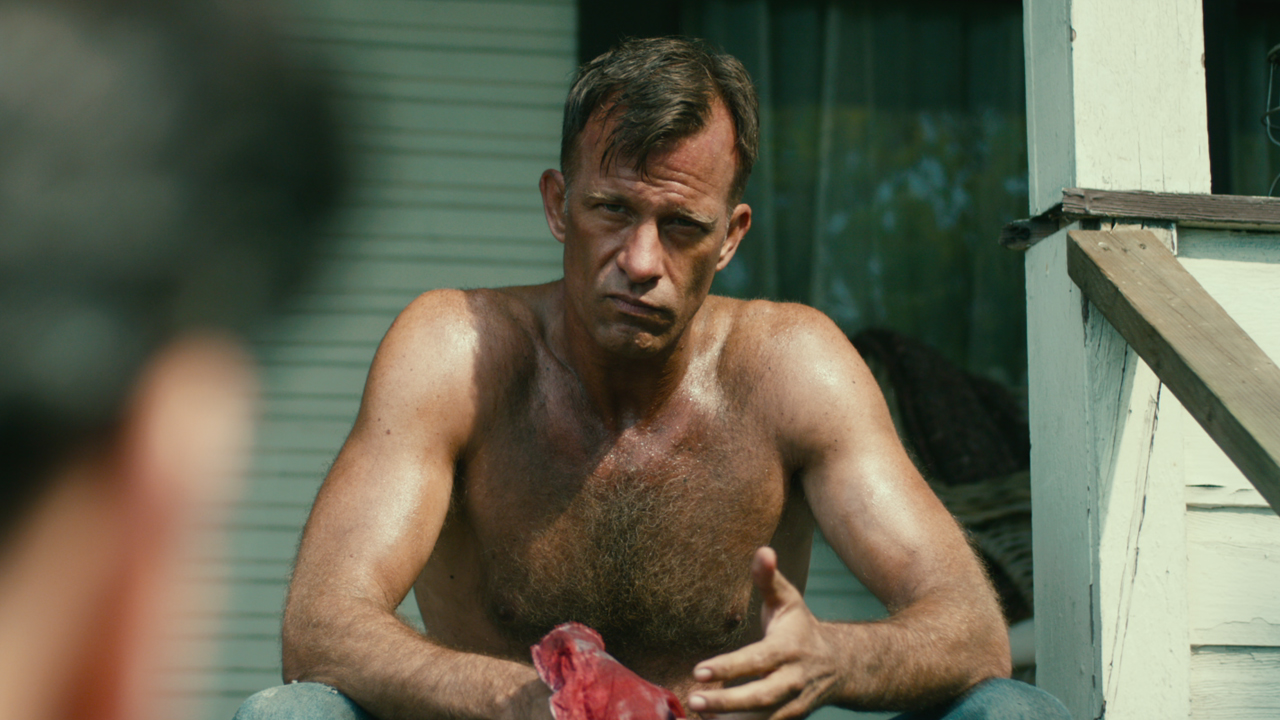
How Zak Hilditch's 1922 Differs From Stephen King's Novella
The fact that Zak Hilditch saw the cinematic potential in “1922” immediately after reading it makes a lot of sense when you watch his adaptation. The filmmaker recognized that everything he needed to make a movie from the material was already written by Stephen King, and it was just a matter of translating the story to a new medium. Continuing to use the confession as a framing device allowed Hilditch to actually use verbatim passages from the novella in voice over from Thomas Jane’s Wilfred, and every single plot development from the novella is featured.
In the making of 1922, the writer/director put all of his trust in the effectiveness of the source material and opted not to add anything of extreme significance to what Stephen King had already created. As such, the only standout changes that Constant Readers can spot are minor cuts and some simplifications that were executed to aid the pacing.
None of the scenes and moments from King’s story that are trimmed from the middle of the movie actually have any larger impact on the plot. For example, there is a scene in the novella when Wilfred gets a visit from Henry’s schoolteacher, who is concerned about the teenager’s changing behavior after the disappearance of his mother. It doesn’t really add anything substantive to the narrative and would have meant the small-budget production casting another speaking role, so it’s easy to see why Hilditch nixed it.
Where things get more interesting in this conversation is how the film approaches the story of Henry (Dylan Schmid) and Shannon Cotterie (Kaitlyn Bernard). Both versions feature Henry leaving his father’s farm to rescue the pregnant Shannon from a Catholic school and depicts them turning to a life of crime as the Sweetheart Bandits – but the adaptation simplifies things to a great extent. The novella goes into great detail about how the boy plots to get to the girl, particularly because his arrival is anticipated by the school’s administration, and then it dives much deeper into nitty-gritty of the spree that eventually leads to their deaths.
Not wanting to take audiences out of Wilfred’s perspective for too long, the movie doesn’t engage as much with that part of the story. Henry’s big rescue mission is reduced to helping Shannon climb out of her bedroom window at night, and their time as the Sweetheart Bandits is presented mostly in montage.
The differences between the film and Stephen King’s story are similar when it comes to the third act. When Wilfred eventually moves to Omaha in the movie, for example, we see him get a job hauling pallets in a clothing factory, but the Netflix production skips over him eventually learning to sew and moving over to the sewing floor (not to mention his second job in Omaha as a librarian). Again, these are details that don’t add a great deal to the plot of 1922, and they would have required extra sets, so it’s not a mystery as to why they aren’t included.
Perhaps the biggest cut that Zak Hilditch makes in adapting “1922” is his decision not to include anything from the novella’s epilogue – which is delivered in the form of a newspaper clipping. The film ends on a supernatural note, with the corpses of Henry, Shannon, and Arlette (Molly Parker) finding their way into Wilfred’s hotel room along with hundreds of rats after the protagonist finishes his confession, and they presumably kill him (which is in the book). With this ending, however, the movie skips over the way in which King’s version snaps readers back to the reality of what really happened: in a fit of insanity, Wilfred bites himself all over his own body, chews up his own confession a la a rat building a nest, and opens his wrists with his teeth.
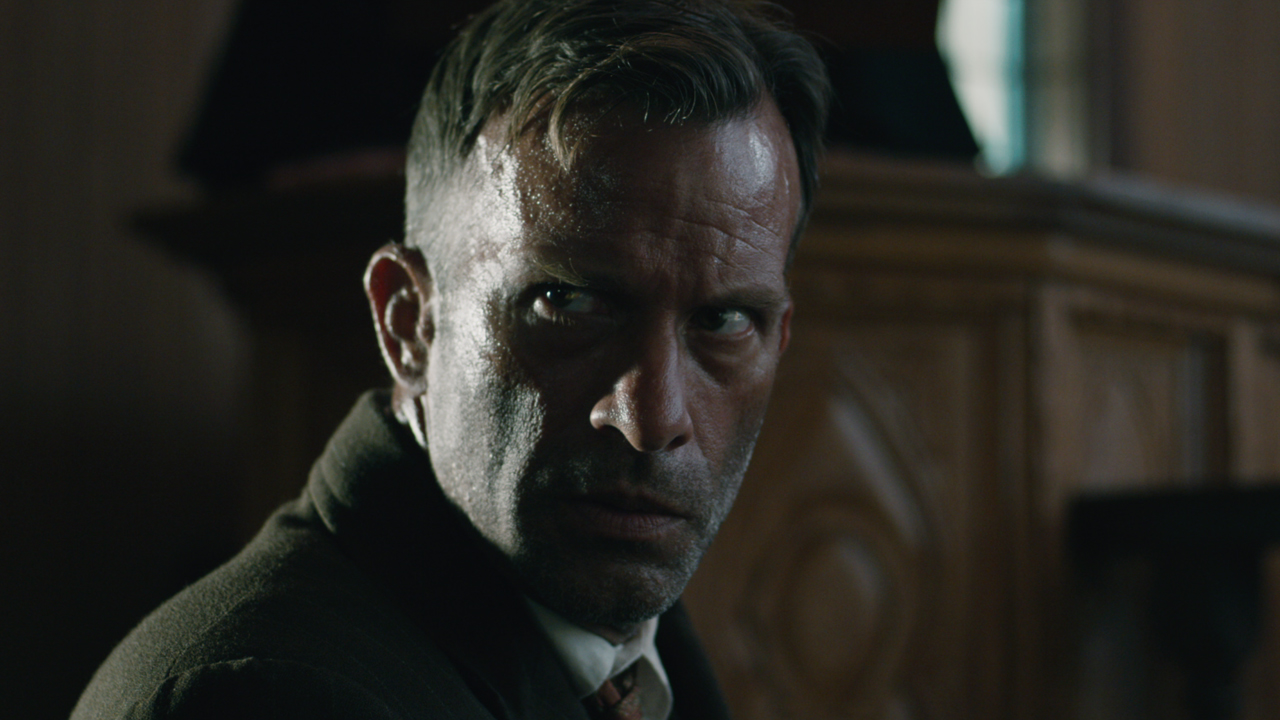
Is It Worthy Of The King?
1922 is a grim experience. It’s a story that begins with nasty and ugly conflict, escalates to horrible crime, and then offers persistent soul eating as Wilfred’s life is utterly destroyed and everything he cares about dies and/or rots away. It’s ugly and brutal, and, frankly, it’s astonishing that it got made as a movie. For that, as a massive Stephen King fan, I am appreciative and permanently mesmerized.
Despite its budget restrictions, it’s a movie that has surprising verisimilitude as it transports audiences back to the titular year, and it builds an oppressive atmosphere that is 100 percent the point. As noted, Stephen King wrote “1922” with the primary intention to evoke the attitude of a particular time and place in American history, and Zak Hilditch’s true accomplishment with the adaptation is translating that perfectly.
Thomas Jane has some greatness and awfulness in his personal filmography of Stephen King adaptations (Frank Darabont’s The Mist and Lawrence Kasdan’s Dreamcatcher, respectively), but 1922 features his best individual work. It’s a perfectly committed performance in both aesthetic and attitude, as he successfully transforms into Wilfred James, and it’s a turn full of terrific subtlety. By his nature, Wilfred is a stoic man who keeps a straight face at all times, but there is endless emotion behind Jane’s eyes, and it’s captivating to watch as the character’s whole world is torn apart.
Zak Hilditch’s 1922 is a movie with a quietly excellent legacy in the history of Stephen King adaptations. To date, it’s the best film that has been made based on a novella from Full Dark, No Stars (it’s far better than both Mikael Salomon's Big Driver and Peter Askin's A Good Marriage), and it concluded the remarkable year of 2017 with excellence.
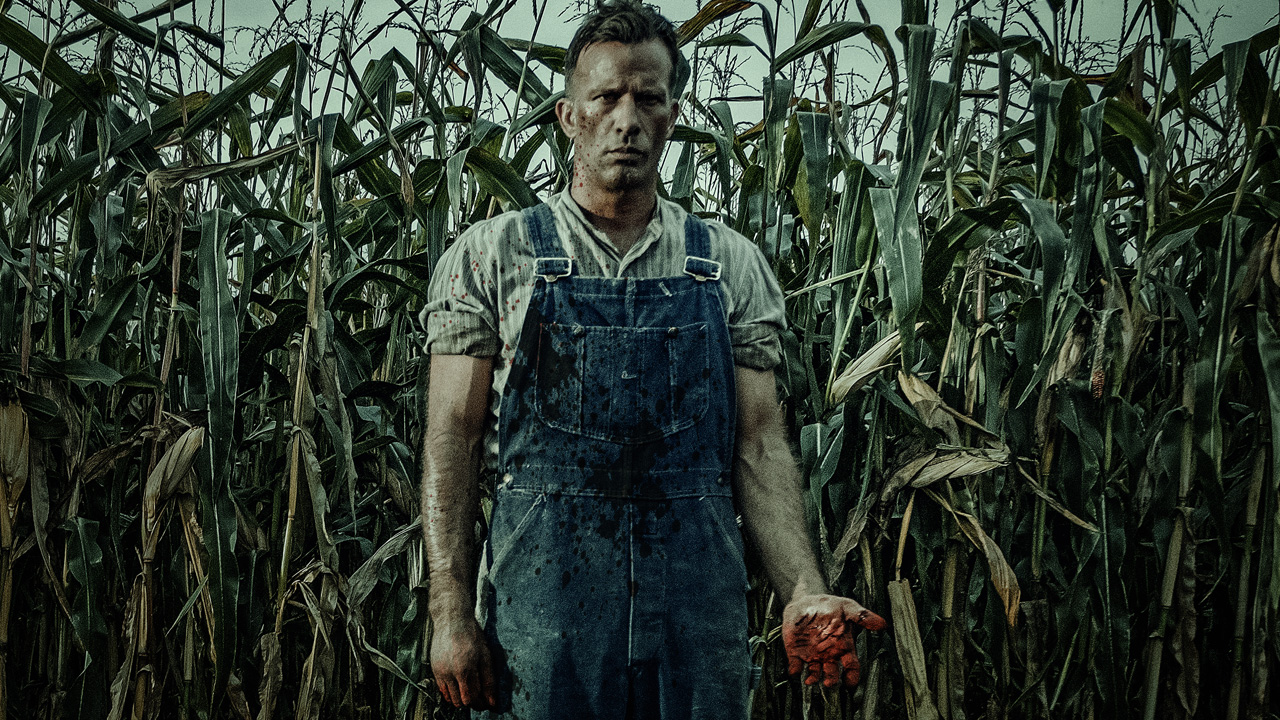
How To Watch Zak Hilditch's 1922
If you’re a physical media collector aiming to create the Ultimate Stephen King collection, 1922 inspires frustration. Much like Gerald’s Game, the Zak Hilditch movie is literally a Netflix exclusive, which means that it is unavailable to watch unless you have a Netflix subscription. Hopefully it will someday get a Blu-ray release from a boutique brand like Shout! Factory or Arrow Video, but it hasn’t happened yet.
Looking ahead, Adapting Stephen King will be getting a special one-week format change for next week’s installment, as I’ll be taking a look at Castle Rock – the Hulu original series that ran for two seasons and exists as a unique amalgamation adaptation. Look for the feature in the CinemaBlend Streaming section on Wednesday, and click through the banners below to discover all of my previous pieces.







Eric Eisenberg is the Assistant Managing Editor at CinemaBlend. After graduating Boston University and earning a bachelor’s degree in journalism, he took a part-time job as a staff writer for CinemaBlend, and after six months was offered the opportunity to move to Los Angeles and take on a newly created West Coast Editor position. Over a decade later, he's continuing to advance his interests and expertise. In addition to conducting filmmaker interviews and contributing to the news and feature content of the site, Eric also oversees the Movie Reviews section, writes the the weekend box office report (published Sundays), and is the site's resident Stephen King expert. He has two King-related columns.








